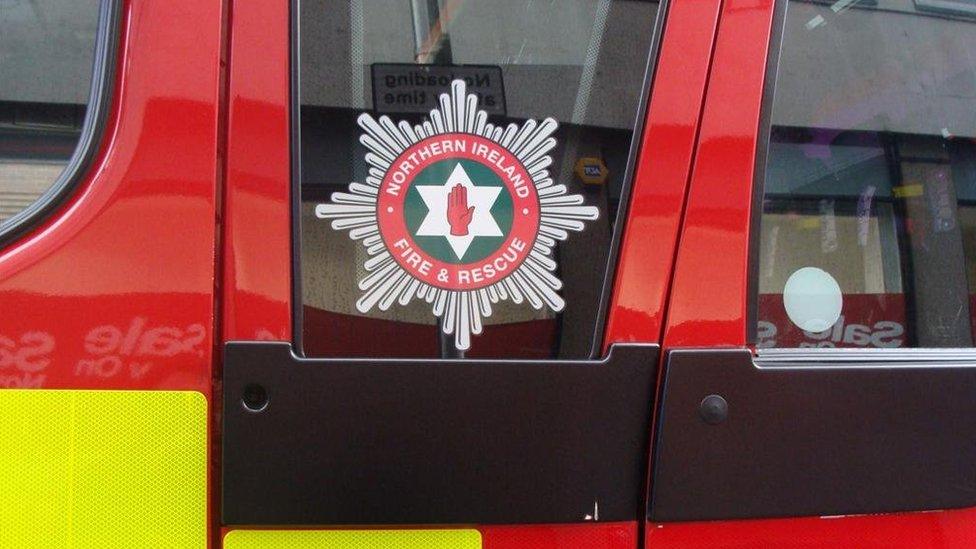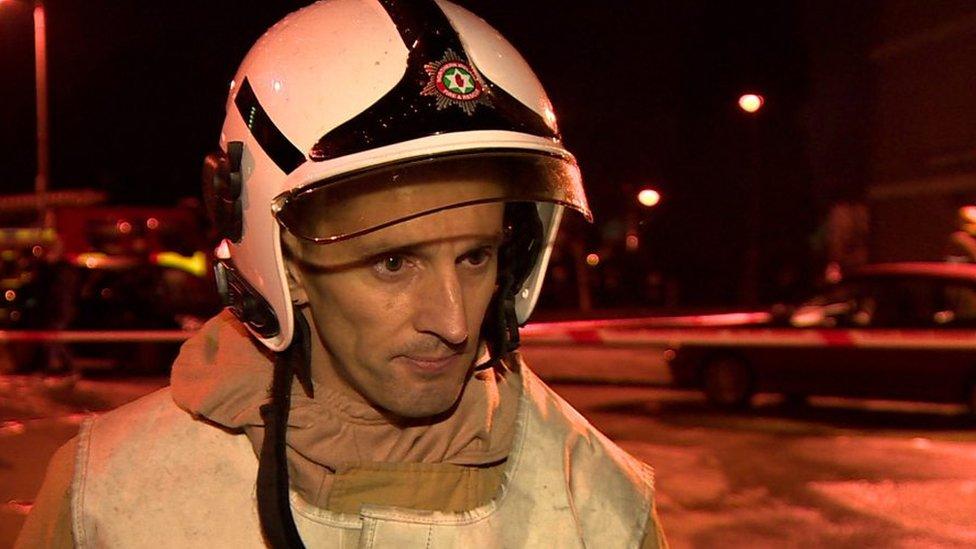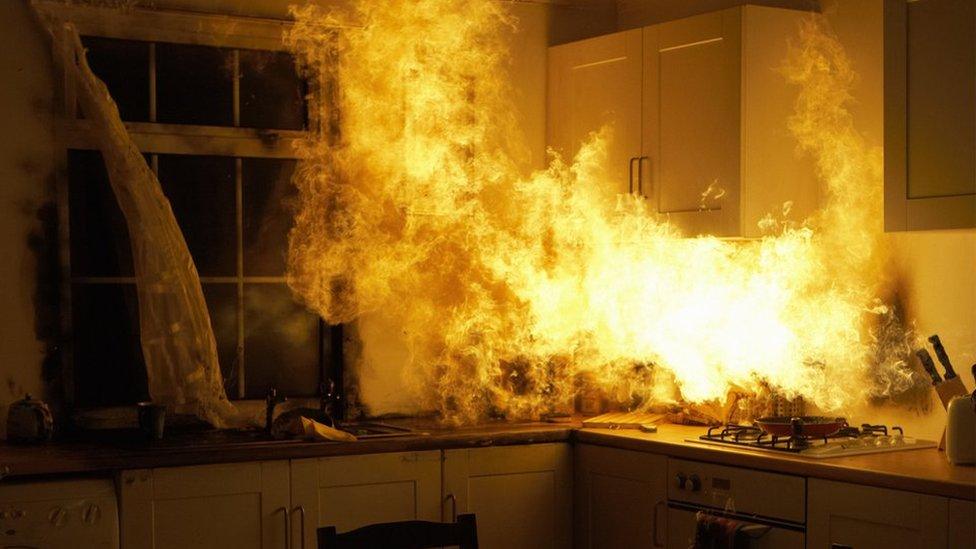NI firefighters no longer go to all automatic alarms
- Published

Firefighters in Northern Ireland will no longer attend all automatic fire alarms in a bid to cut the number of unnecessary call-outs.
The Northern Ireland Fire and Rescue Service (NIFRS) said just over 1% of automatic alarm call-outs are an actual fire.
A new policy setting out how NIFRS will respond came into affect on Thursday.
It means crews will only respond if the alarm is backed up with an emergency call.
The fire service said hospitals, hotels and residential homes are exempt from the new policy.
"If we receive reports of a fire or signs of fire we will always mobilise immediately to the premises," NIFRS group commander Geoff Somerville said.
"However, we are encouraging fire alarm monitoring organisations and property managers to investigate a fire alarm prior to calling NIFRS".
Previously a fire engine and crew would be sent to every automatic alarm.

Geoff Somerville said the fire service is committed to delivering the highest level of service to the community
Now, Mr Sommerville said, the service's regional control centre "will dispatch the nearest resource if evidence of a fire is found or reported.
"But it is not legally obliged to respond to fire alarm signals if there is no fire or signs of a fire".
According to NIFRS data, only a small number of automatic alarms are for an actual fire. Between 2017 and 2022, NIFRS said, 98.7% of all automatic alarm call outs turned out to be false.
The new policy, NIFRS said, will ensure firefighters are available for actual emergencies, will optimise the use of public funds, and also reduce costs.
"NIFRS is committed to delivering the highest level of service to the community while ensuring responsible use of public funds," Mr Sommerville said.
Related topics
- Published1 February 2022
